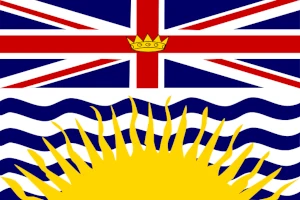British Columbia Income Tax Brackets
Tax brackets in British Columbia are indexed to the B.C. Consumer Price Index (BC CPI). This means that the tax brackets increase each year to adjust for inflation. By doing this, the provincial government can ensure that inflation does not push you into a higher tax bracket, forcing you to pay more taxes. For 2025, the tax brackets have increased by 2.8% (down from 5.0% in 2024) from the prior year. The tax brackets are as follows.
British Columbia Provincial Income Tax Brackets
| 2023 | 2024 | 2025 | Rate |
|---|---|---|---|
| Less than $11,981 | Less than $12,580 | Less than $12,932 | 0% |
| $11,982 to $45,654 | $12,581 to $47,937 | $12,933 to $49,279 | 5.06% |
| $45,655 to $91,309 | $47,938 to $95,875 | $49,280 to $98,560 | 7.7% |
| $91,310 to $104,835 | $95,876 to $110,077 | $98,561 to $113,158 | 10.5% |
| $104,836 to $127,300 | $110,078 to $133,664 | $113,159 to $137,407 | 12.29% |
| $127,301 to $172,602 | $133,665 to $181,232 | $137,408 to $186,306 | 14.7% |
| $172,603 to $240,716 | $181,233 to $252,752 | $186,307 to $259,829 | 16.8% |
| $240,717 and above | $252,753 and above | $259,830 and above | 20.5% |
The History of BC Provincial Income Taxes
From 1991 to 2000, BC had a consecutive streak of New Democratic Party Premiers. As a result, there were not many changes to the income tax policy. However, in 2001, Premier Gordon Campbell (Liberal) was elected and slashed income tax rates by 25% in each tax bracket. Following Campbell’s ten-year run, Premier Christy Clark (Liberal) took office in 2011. She did not change the income tax rates but slashed the Medical Services Plan (MSP) premiums. Clark also increased the tax reduction credit in 2016.
After 16 years of Liberal control, Premier John Horgan (NDP) took office in 2017. In the year 2020/21, he increased the tax rate from 14.7% to 16.8% for those with incomes over $155,000. Premier David Eby (NDP) succeeded as the Premier of B.C. in 2022 and has not changed the tax rates adopted in 2020/21.
B.C. Tax Reduction Credit
The B.C. tax reduction credit provides a non-refundable tax credit for those with net income below a certain amount. For the 2025 tax year, individuals with an income below $40,807 can claim up to $562 from their income tax bill. However, this tax credit is reduced by 3.56% of income above $25,020.
For example, if your income is $30,000, your tax reduction credit would be $562 minus 3.56% of the amount over $25,020 ($4,980). The reduction would be $177.29 (3.56% of $4,980), resulting in a tax reduction credit of $384.71.
B.C. Tax Reduction Credit
| 2023 | 2024 | 2025 | |
|---|---|---|---|
| Maximum Credit | $521 | $547 | $562 |
| Income Eligible for Maximum Credit | $23,179 | $24,338 | $25,020 |
| Maximum Income Threshold for Reduced Credit | $37,814 | $39,703 | $40,807 |
| Credit Reduction Factor | 3.56% of income above $23,179 | 3.56% of income above $24,338 | 3.56% of income above $25,020 |
Source: Government of British Columbia
British Columbia Personal Amounts
B.C.'s basic personal amount for 2025 is $12,932 (up from $12,580 in 2024). You can also claim non-refundable tax credits up to $11,073 if you have a spouse/common-law partner or an eligible dependent. The spousal and eligible dependent credits are reduced when the income of the spouse or eligible dependent exceeds $1,108 in 2025 (up from $1,078 in 2024).
B.C. offers several other credits, including the B.C. caregiver credit, old age credit, pension credit, credit for the mentally or physically impaired, and more. You can find a complete list of available credits on the B.C. government website's personal income tax credits page.
Canada Pension Plan and Employment Insurance
The Canada Pension Plan (CPP) is a monthly, taxable stipend paid out as part of your income in retirement. The amount you get in retirement is determined by your average earnings, contributions to the program, and the age you start receiving payments. To be eligible to receive CPP payments, you must be over 60 and have made valid contributions.
If you are employed in British Columbia, you will be required to contribute towards both the Canada Pension Plan (CPP) and pay Employment Insurance (EI) premiums. Employers will jointly contribute to CPP and match your EI payments at a typical rate of 1.4x. Self-employed individuals have the option of contributing to EI. However, self-employed people must fully contribute to CPP instead of splitting costs with their employer.
Prior to January 1, 2020, residents of British Columbia were also required to pay premiums towards the Medical Services Plan (MSP). MSP premiums have now been eliminated.
Employers with an annual remuneration greater than $500,000 are required to pay the B.C. employer health tax. The 2024 budget proposes to increase the exemption remuneration amount to $1,000,000 from the current $500,000.
